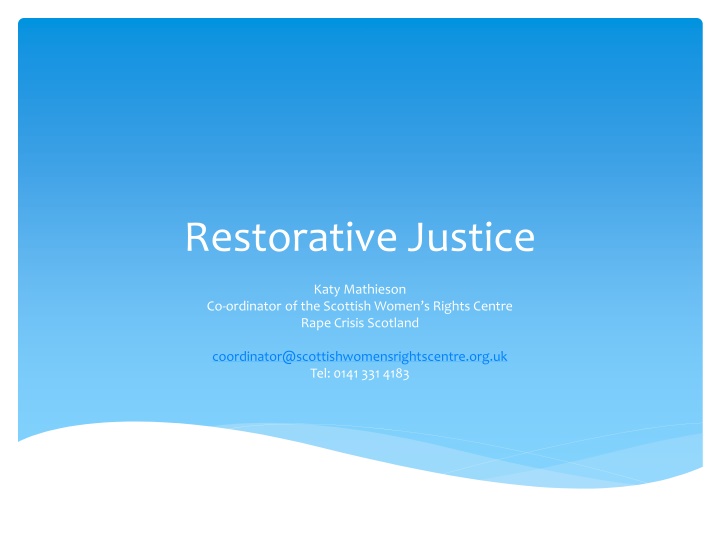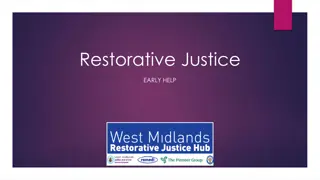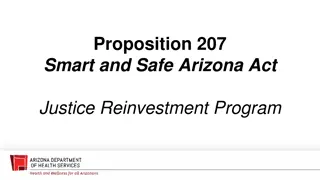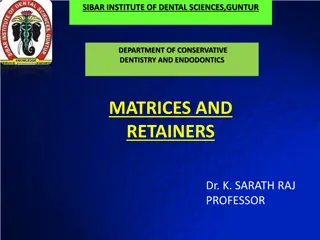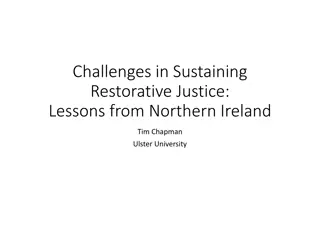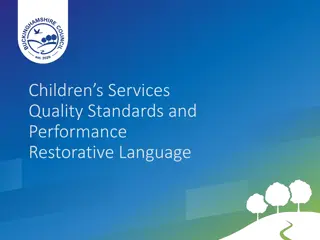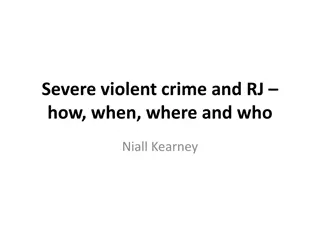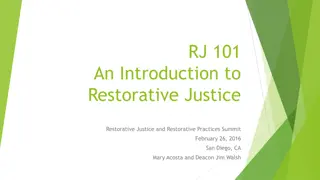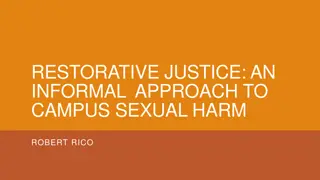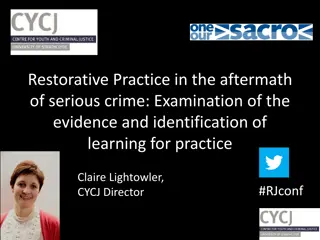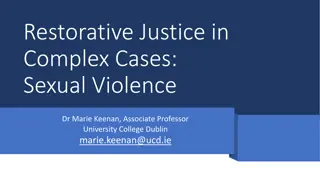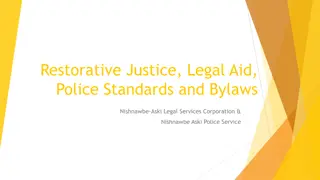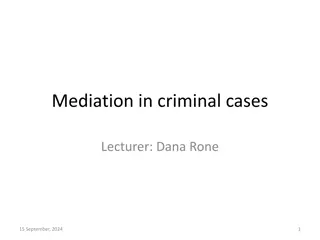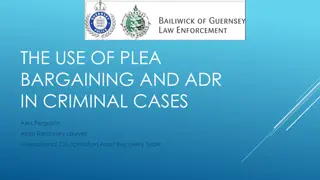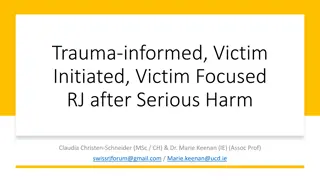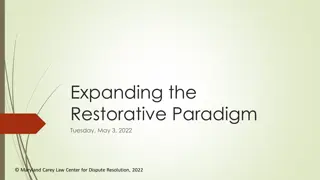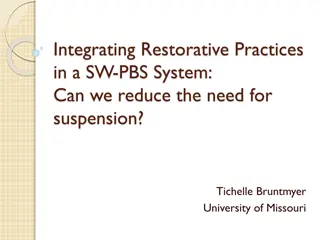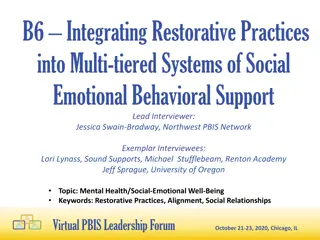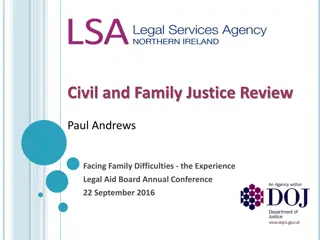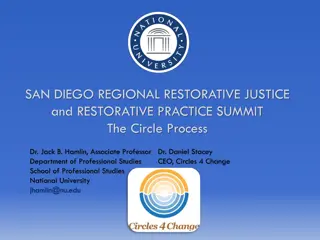Restorative Justice
Survivors of sexual crimes express concerns about the restorative justice process, highlighting the need for separate systems, accountability, and support. Their experiences underscore the complexities and challenges in seeking justice and reconciliation. Implementing reforms and addressing survivor needs are crucial steps in restoring trust and healing.
Download Presentation

Please find below an Image/Link to download the presentation.
The content on the website is provided AS IS for your information and personal use only. It may not be sold, licensed, or shared on other websites without obtaining consent from the author.If you encounter any issues during the download, it is possible that the publisher has removed the file from their server.
You are allowed to download the files provided on this website for personal or commercial use, subject to the condition that they are used lawfully. All files are the property of their respective owners.
The content on the website is provided AS IS for your information and personal use only. It may not be sold, licensed, or shared on other websites without obtaining consent from the author.
E N D
Presentation Transcript
Restorative Justice Katy Mathieson Co-ordinator of the Scottish Women s Rights Centre Rape Crisis Scotland coordinator@scottishwomensrightscentre.org.uk Tel: 0141 331 4183
RCS perspective Whilst we agree RJ offers some survivors the possibility of some form of reconciliation, in our experience most survivors do not seek this RJ for sexual abuse and child abuse survivors has unique considerations Need to be absolutely clear of the potential risks
Criminal Justice Response to SV It is clear the criminal justice process fails survivors of sexual crimes: 2015-16 Reported rapes:1,809 Prosecutions:216 Convictions:104 It therefore remains essential that resources are channelled to address this RJ must be completely separate to the criminal justice process, it can not be an alternative to prosecution or impact on sentencing If there has been no conviction, how likely is a perpetrator to admit guilt and take responsibility? If this is not going to happen, what is the point of the RJ process?
Concerns Power and control Theory vs practice Who safeguards the process? How do we ensure it is not an additional burden on the survivor? What evidence is there that RJ has a reformative effect? How do we ensure the process, particularly in relation to institutions, does not present an opportunity to negate responsibility?
Survivors experience 98 in care abuse survivors, 15 undertook, 1 completed Described the process as: insensitive, uncaring, callous, coercive and secretive Described the facilitators as inexperienced, lacking knowledge of trauma and lacking transparency Created an action plan which was viewed as completely failing to meet the needs of child abuse survivors or contributing to a coherent, sustainable prevention policy Impact on survivors who undertook the process: hospitalisation, substance misuse, homelessness, extreme distress
What survivors wanted SHRC Framework 15 years of work + on-going Accountability & acknowledgement Support system An unequivocal apology Commemoration Removal of the time bar Redress in civil and criminal courts an accumulation of the above could restore faith, healing and re-conciliation
Other Options Civil damages Goodwillie case Considerations: legal aid, no guarantee of anonymity, lack of protections Denise Claire: I have been let down by the justice system. They should be behind bars. The police pursued the case but the Crown Office decided not to proceed. It was never about money. Truth doesn t have a price. It was about exposing them for who they are.
